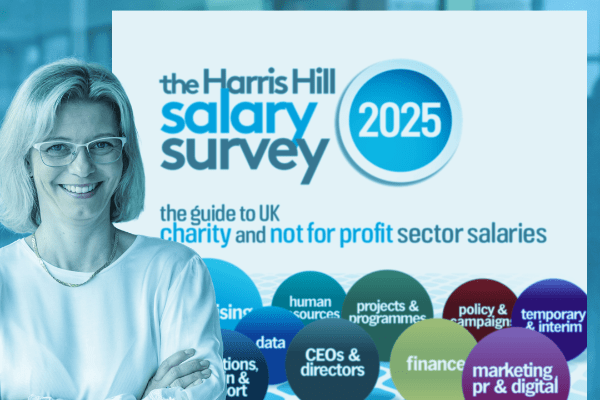Our very own haphazard duo Jessamine Green and aptly named Harriet Mountain (with the team name Hazzamine) are embarking on the epic Three Peaks Challenge this weekend on 3rd August 2019. The Three Peaks challenge involves climbing the three highest peaks of Scotland, England and Wales within 24 hours.
So to help prepare and understand why they have decided to embark on this madness we thought we would ask them a few questions.

What made you decide to do the three peaks challenge?
Jess:I’ve always wanted to do the three peaks and so when the opportunity knocked to be able to do it for a good cause I signed up immediately! Last year I fundraised for the Nepal Earthquak Recovery Fund by trekking the Himalayas and building a water tank in rural Nepal. I realised how all the funds went directly to those affected by the earthquake, the amazing work the charity had done previously to allow the basic need of clean water, after villages and towns had been wrecked and people displaced (two earthquakes in two years) and I am so enthusiastic to support this charity to continue their work.
Harriet: I’ve always thought about doing a challenge like this but then Jess mentioned she was doing it and I thought why not? It can’t be that hard and then signed up on a whim without realising quite what it entailed! I also really admired the work that NERF do as all the funds go directly to those affected by the earthquake.
How are you feeling about it?
J: Terrified! Trekking last year was very difficult and I am hoping for no altitude sickness and some good weather (Trying not to think about 24 hour time cap!). Even seasoned trekkers find it difficult so hoping my strong legs and stubborn attitude will help.
H:I’m absolutely terrified if I’m honest. I don’t feel very prepared and have not done anywhere near enough training. It’s the completing it in 24 hours that is really worrying me as I would be really looking forward to it if it was at a more leisurely pace!
Who have you chosen to raise money for?
J+H: The Nepal Earthquake Recovery Fund

Have you done much climbing before?
J: I’ve done trekking in Malaysia, Israel and last year went to Nepal to hike the Himalayas.
H: I’ve done Snowdon before and also climbed Mount Kinabalu (4,095m) in Borneo a couple of years ago
How's the training plan going?
J: …what training plan?
H: SNAP!...what training plan? I have done a couple of long walks and attempted the gym a few times but not gone to plan. Eeek! I did do a 10 mile walk in and around Richmond park on Sunday but then ended up a pub afterwards for six hours for a well earnt roast and a few gins!
How confident are you feeling and what's going to be the biggest challenge?
J: I think resilience and determination is my driving force as I’ve always loved a challenge and the feeling once you’ve exceeded your own expectations. Even for experienced hikers it’s supposed to be gruelling and incredibly difficult. I think the last peak will be the hardest as I know the end is getting near and my legs will be ready to buckle.
H: I’m not feeling that confident as training hasn’t gone quite to plan but I am quite resilient and feel that will be a help and also I don’t want to let the rest of the group down so that will keep me going! The biggest challenge is going to be the timeframe as I do like a little rest and don’t think there’s going to be much time for that! I’m also worried as I have got Boomtown Festival three days after we finish so am going to be sore for that!
Are there any of your recruitment skills that will come in handy during the three peaks challenge?
J: My persuasion and assessment skills and breaking down a project into bitesize chunks (persuading myself to tackle one peak at a time!)
H: Resilience is something I have really developed in recruitment, dealing with candidates dropping out, clients choosing other candidates etc. You have to develop a thick skin and roll with the punches. I just keep going… I will just keep going up the mountains!
What are the biggest challenges you face in charity recruitment and how does the three peaks challenge compare?
J: The biggest challenge I experience is managing multiple jobs with multiple candidates and the seasonality of the recruitment cycle – I feel myself a little a daunted at the prospect of these multiple peaks and working to a strict deadline.
H: The biggest challenge I experience is managing multiple varying jobs with multiple candidates at any one time, at least it will be just one peak one at a time.

How's the fundraising going and most importantly, where can we donate?
J + H: Fundraising is going a little slowly with a consensus of donating on completion – however, it would be more encouraging to see the faith of our friends and colleagues if donate ahead of doing it!
J+H: Please!
And last but not least, what are you most looking forward to when it's all over?
J: A cold beer in the national park in Snowdonia.
H:A BIG gin and tonic!
Well cheers to that! I am sure after all that climbing you will most definitely deserve it. Good luck! If you would like to donate to either Jess or Harriet’s pages these can be found here and here.
Or if you wish to donate directly to the Nepal Earthquake Recovery Fund this can be found here.
-

Opportunity for all
Find out how we’re working to deliver more diverse, equitable and inclusive recruitment…
-

Recruiting a charity CEO?
Our executive recruitment specialists have an exceptional record of successful CEO, chair, trustee and…
-

Charity sector salaries
Our 2025 Salary Survey has the latest rates and expert insight for roles throughout the sector.













